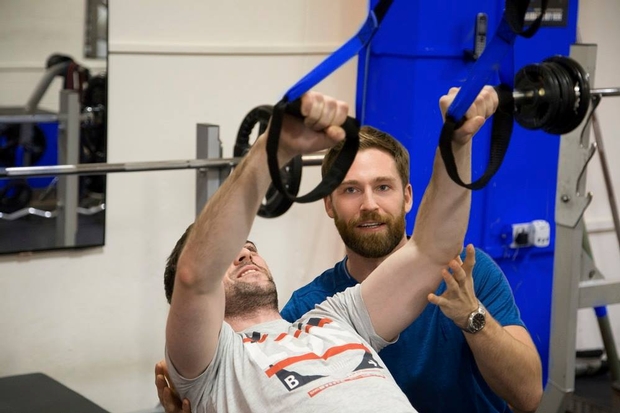The power of a pre-wedding sleep routine
Aside from looking radiant and well-rested on your wedding day, getting enough sleep offers additional...

|
With so many ideas and opinions surrounding fat loss, it is often hard to distinguish right from wrong, and you will often find your friends or family members trying different diets and doing various moves at the gym in a bid to burn fat, leaving you questioning if your own methods are right.
To help you differentiate the fat burning facts from fiction and truly benefit from what our bodies can do, we've caught up with Keith McNiven, Personal Trainer and Founder of London based personal training company, Right Path Fitness (www.rightpathfitness.com), who reveals his insider knowledge on some of the most common fat related myths (and truths!) to help you understand what you need to be doing to lose fat, once and for all.
1. Training On An Empty Stomach: We tend to hear more and more that training on an empty stomach, also known as a 'fasted state', is best for fat loss, and that is true to an extent. A study with obese people found that intermittent fasting combined with exercise worked better than diet or exercise alone, as insulin sensitivity and hormone growth are higher when in a fasted state, which is known to increase fat loss. However, this technique must be used with caution. For many people, a light breakfast can actually help them to perform exercises better and therefore elevate their fat burning potential.
2. Cardio Vs. Resistance: There's something about a cardio session that makes us think it's doing more for us than resistance exercise. Maybe it's because we can see the tangible effects of our effort, for instance based on the distance we've run or the time we have done it. However, the truth is that resistance training can be more effective than cardio when it comes to fat-burning, so you should never just opt for cardio in a bid to lose fat.
3.Time You Exercise: Everyone has their opinion about the best time of day to train but the truth is that any time of day has benefits. Train in the morning, and you'll feel the benefits (and potential fat burn) all day, but train in the evening and you can burn off the fuel you've taken on board that day. Anytime of day is better than not at all!
4. Sweaty Vs. Sleek: Often, we think that when we're completely dripping with sweat, we've put in a superior workout to when we've trained hard but not sweated much. It's all psychological though, and sweat doesn't necessarily mean you've worked harder. You may sweat more than other people, but more sweat does not mean more calorie burn nor does it affect how fat is metabolised in your body, and you will regain the weight you have lost from sweating as soon as you rehydrate. The truth comes in how you feel and the effort you have put in. Never judge your workout by the amount you have sweated.
5. Train For Life: People can be put off starting exercise programmes because they think it means they've got to do it every single day. Yes, it's best if you can incorporate activity into your everyday life, for example, a daily walk, running up the stairs at home, or playing with the kids at the park, but in terms of actual workouts, 3-4 fat burning workouts per week is a good goal and will really allow you to see results.
6. Post Workout Fuel: There's nothing like a workout to make you feel completely ravenous and there's this myth that everything you eat after training 'doesn't count', well it absolutely does! You're re-fuelling your body after depleting it of essential fuel so stick with foods that your body will thank you for. I would suggest opting for a carbohydrate and protein rich snack in a 3:1 ratio (carbs: protein) like a few slices of chicken on a wholemeal pitta.